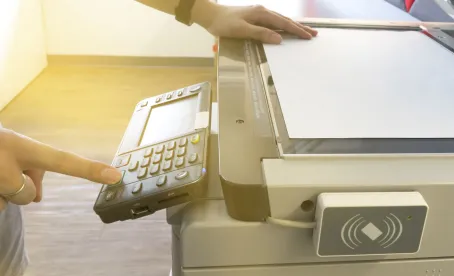The Telephone Consumer Protect Act (“TCPA”) has seen lots of action in 2019, and in the final days of the year the Federal Communications Commission (“FCC”) issued a significant ruling concluding that “online fax services” i.e. e-faxes are outside the scope of the TCPA. The FCC’s ruling effectively prevents the common “junk fax” class action lawsuits against companies that send out e-faxes, assuming those faxes are not delivered to a traditional fax machine.
In 2005, the TCPA, which restricts telephone solicitations and use of automated telephone equipment, was amended to include the Junk Fax Prevention Act (JFPA) that restricted the use of the fax machines to deliver unsolicited advertising.
The FCC ruling stems from a 2017 petition by Amerifactors asking the FCC to clarify that faxes sent to “online fax services” are not faxes sent to “telephone facsimile machines”, and therefore do not violate the TCPA. An online fax service is “a cloud-based service consisting of a fax server or similar device that is used to send or receive documents, images and/or electronic files in digital format over telecommunications facilities” that allows users to “access ‘faxes’ the same way that they do email: by logging into a server over the Internet or by receiving a pdf attachment [as] an email.” At the time, Amerifactors was defending a class action suit on claims that it violated the TCPA, where the bulk of messages sent to consumers were from “online fax services.”
In finding that “online fax services” are not considered “telephone facsimile machines” the FCC turned to the plain language of the TCPA. The TCPA’s language demonstrates that Congress did not intend the statute’s prohibition to apply to faxes sent to equipment other than a “telephone facsimile machine”. In addition, the FCC highlights precedent dating back to 2003 that faxes “sent as email over the Internet” are not subject to the TCPA. Faxes sent by online fax services via an attachment that the consumer can delete without printing are effectively the same as “email sent over the Internet”.
Importantly, the FCC notes that faxes sent by online fax services do not lead to the “specific harms” to consumers Congress sought to address in the TCPA.
“The House Report on the TCPA makes clear that the facsimile provisions of the statute were intended to curb two specific harms: “First, [a fax advertisement] shifts some of the costs of advertising from the sender to the recipient. Second, it occupies the recipient’s facsimile machine so that it is unavailable for legitimate business messages while processing and printing the junk fax.” The record is clear that faxes sent to online fax services do not pose these harms and, in fact give consumers tools such as blocking capabilities to control these costs.”
This ruling is considered a win for businesses, and will likely have a sweeping impact on litigation in this area. Stay tuned for more TCPA related developments in the coming year.




 />i
/>i

